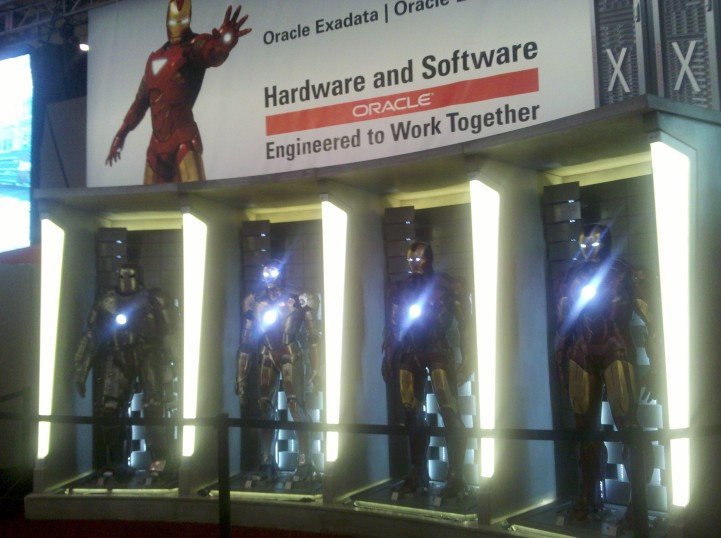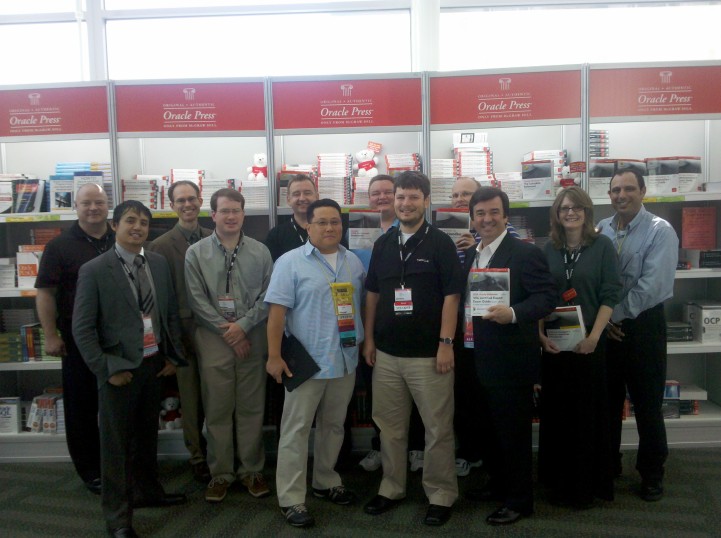“Everyone doesn’t have their own well at their house … we tap into the water network, we tap into the electricity network … we get better service at a lower price by having our water come from a utility … we’ll experience the same economic advantages … as we get our data from an information utility.” – Larry Ellison, Oracle Open World, September 18, 2016, spoken during his keynote presentation: “The Cloud: A New Era of Utility Computing”
Don’t be misled. Larry Ellison is not late to the Cloud Party. Consider this quote from 1998:
… Larry Ellison, the founder and CEO of the Oracle Corporation, has frequently mused at what life would be like if common household appliances had the same complexity of maintenance as a PC … “Sorry, I can’t go out tonight, I’m staying home so I can upgrade my TV to version 7.0.” … Ellison’s argument … the PC must become as easy to use as any common household appliance.
In a recent presentation … Ellison was asked … if the network will be stable enough—won’t it crash from time to time? … Ellison’s response … what is the last thing that crashed on you: your telephone, or Windows … ? The audience roared with laughter, making the answer obvious …
The number of networks we already depend on is impressive: plumbing, electricity, highways, television, radio—all networks professionally run by others … Why should a computer user experience anything different?
— Excerpted from Chapter 27, “Oracle Web Application Server”, in the book “Oracle8 Server Unleashed” published by Macmillan Computer Publishing.
That’s a brilliant quote, isn’t it? You better say ‘yes’ because I selected that 1998 quote for my chapter in that “Oracle8 Server Unleashed” book. (I only authored that one chapter, this work was the result of a few dozen authors, I only authored the one chapter.)
I selected that quote because of Larry Ellison’s leadership. Ellison, way ahead of his time, had already seen the potential of the World Wide Web and its underlying protocol, HTTP, all of which had been invented barely five years prior. Ellison had already seen the vision and was leading the charge towards “utility computing”.
So I was thrilled to see Ellison keeping that phrase alive yesterday at OOW. To me, “utility” computing is significantly more descriptive than the phrase “cloud” computing. Clouds paint images of vague, nebulous, fragmented things somewhere far away, without specificity or form or shape. But utility computing is much more descriptive of what is really intended: a ubiquitous workhorse that is simultaneously both specific and dependable, scientifically complex at it core, cutting edge in its usefulness, yet easy for everyone to access and use for common purposes.
Cloud computing is not just a “computer somewhere else”, as I’ve heard it described – that’s a funny one-liner and I’ve been guilty of laughing at it myself. But cloud computing – utility computing – is significantly much more than that. It is a series of complex hardware, network, and software components, brought together in an easy-to-configure, easy-to-access, ever-present simple interface through which an end-user can quickly set up (provision) whatever resources he or she needs quickly to meet whatever business requirement is currently demanding attention, in a more cost-effective manner than ever before, by compartmentalizing the various desired components and optimizing their deployment.
It is true that Amazon Web Services has much of the market momentum at the moment, and has captured a lot of the headlines in the tech industry.
But the truth is that Oracle is still, to this moment, the unquestioned leader in all forms of serious professional business software applications, and he has been actively and purposely working for years to leverage the power of the network in support of business objectives. The multi-year re architecture of most of the world’s leading enterprise resource planning (ERP) applications is just one example of what they’ve done toward this goal.
This week’s Oracle Open World should be very eventful.
For Larry Ellison’s keynote last night, see this link, but recognize this link might not survive much longer than OOW 2016: https://www.oracle.com/openworld/on-demand/index.html
For an OOW YouTube channel highlight that might survive the link above, see here: https://youtu.be/S1p_TcS9bxk


